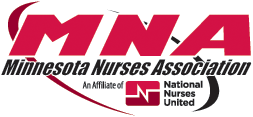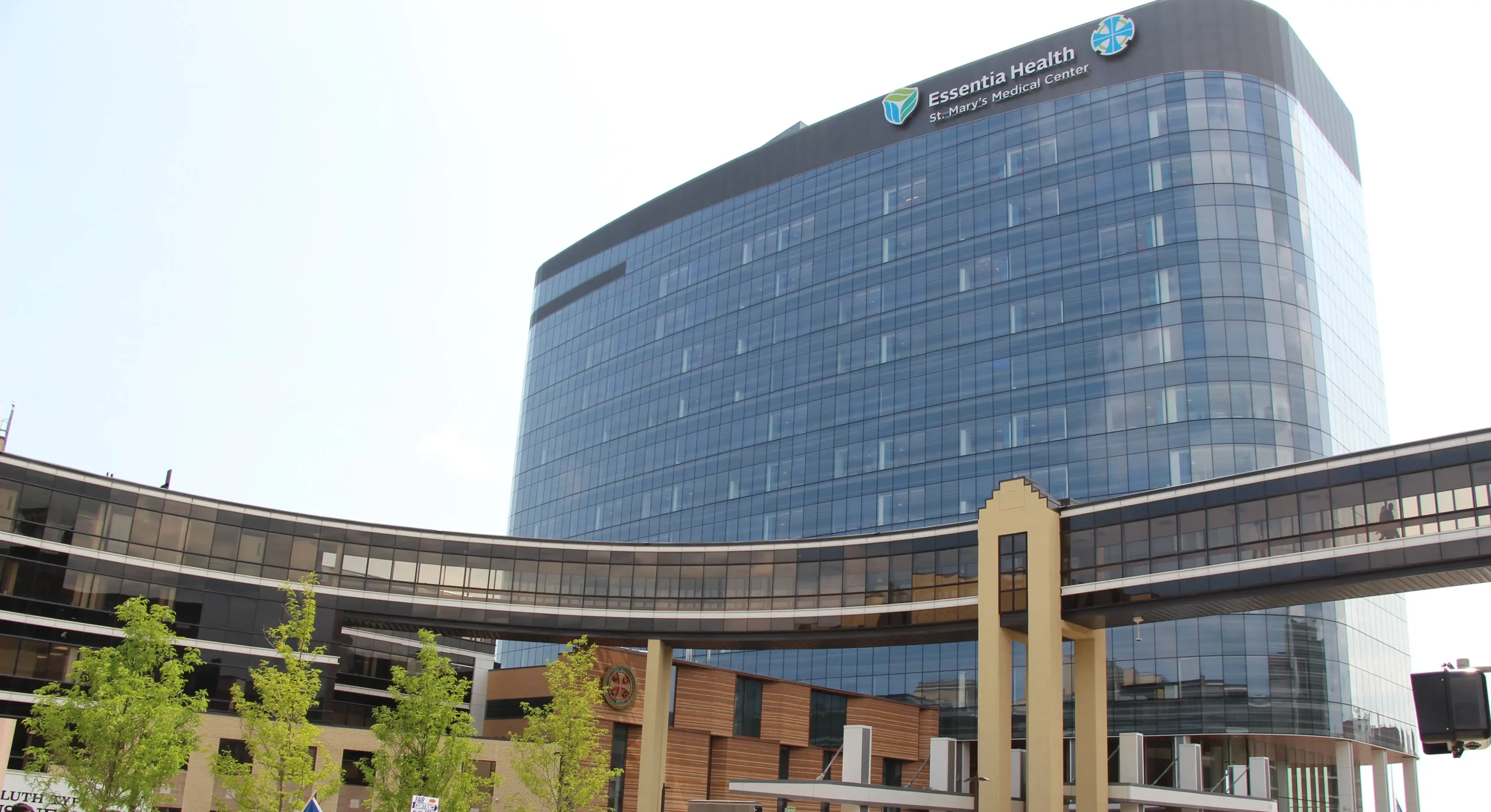MNA Legislative Update May 9, 2014
Public Employee Relations Board 
On Monday the House voted to accept the changes the Senate made to bill to establish a Public Employee Relations Board (HF3014) last week. This legislation would create a board to decide Unfair Labor Practice (ULP) claims involving public employees, which includes many MNA nurses at public municipal or county hospitals (known in statute as Charitable Hospitals). Under current law public employees must litigate ULP claims in district court-a cumbersome and expensive process. The PERB bill would create a process that saves employers and employees money and would mirror the ULP process in the private sector.
Despite attempts by hospitals, an amendment to exempt Charitable Hospitals facilities failed. Another amendment to delay implementation of the PERB for Charitable Hospitals for one year also failed.
The bill will now go to the Governor for his signature.
APRN Bill
Last week the Senate unanimously passed Sen. Kathy Sheran’s bill (SF511) to allow Advance Practice Registered Nurses to practice to the full extent of their scope was heard on the Senate floor. Her bill would give full practice authority to Certified Nurse Midwives, Certified Registered Nurse Anesthetists, Nurse Practitioners and Clinical Nurse Specialists. The bill allows APRNs to practice independently, but does limit CRNA’s who will continue to require a collaborative management agreement with a physician to practice pain management.
On Thursday the House took up the Senate version of the bill. After many attempts to add more barriers to APRN practice, the House passed the bill 119-13 with an overwhelming bipartisan majority. MNA supports this bill to allow APRNs to practice to the top of their license and training. This bill represents years of work by advocates for APRNs, and we are glad to see it move on to the Governor for his signature.
Medical Marijuana
On Tuesday the Senate passed a bill legalizing the medical use of marijuana for serious medical conditions. With a vote of 48-18, a strong bipartisan majority showed support for the ability of patients will qualifying conditions such as cancer, HIV/AIDS, seizures and glaucoma to access relief from medical cannabis. The bill allows several means of taking medical marijuana, but prohibits smoking marijuana.
In the House, a narrower bill that does not legalize medical marijuana, but creates a clinical study that would allow some patients with qualifying conditions access to some types of medical cannabis, is being debated on the House floor today (Friday, May 9). At least 50 amendments are expected.
MNA supports legislation that would provide compassionate relief to seriously ill patients. While the Senate version of the bill would allow more patients to access treatment, and we prefer it to the House bill, we are supportive of any legislation that moves us closer to providing patients with access to relief.
Steve’s Law
The bill to broaden the availability of Naloxone (Narcan) for first responders to use in cases of opiate overdose (SF1900) passed the House unanimously on Wednesday. Members of both parties spoke eloquently about the disease of addiction and the great promise this bill has to save lives and give individuals suffering with substance use disorders a second chance. The bill is on its way to the Governor for his signature. MNA proudly supports this bill.
Women’s Economic Security Act
The House voted on the Conference Report (the version agreed on by both House and Senate negotiators) for the Women’s Economic Security Act (WESA) on Wednesday. The vote of 104-24 showed strong bipartisan support for the most significant women’s rights legislation in years. The Senate debated the bill on Thursday night, and an attempt to send the bill back to conference committee (which would have probably doomed it) failed on a vote of 33-32. After that attempt failed, the bill passed by a bipartisan vote of 43-24.
The Women’s Economic Security Act:
- allows mothers to stay in the workforce by expanding family leave and providing reasonable accommodations for pregnant and nursing employees
- Decreases the gender pay gap through the participation of women in high-wage, high-demand occupations in fields such as science, technology, engineering, and math (STEM)
- Decreases the gender pay gap by reducing the “motherhood penalty” by requiring equal employment treatment regardless of “familial status.”
- Addresses negative economic consequences of domestic violence, stalking, and sexual assault
- Enhances retirement security by considering a state retirement savings plan for those without an employer-provided option
MNA supports this bill, and many nurses contacted their legislators and should be proud of their part in passing this historic legislation. The bill will now go to the Governor for his signature.
Health and Human Services Policy Omnibus Bills
The House passed the Health and Human Services Policy Omnibus Bill on Monday by a vote of 86-46. Among many other provisions, the HHS Omnibus Bill contains language that MNA supports related to the Health Professionals Services Program (HPSP) and health professionals with substance use disorders. The bill strengthens and stabilizes the HPSP, which provides monitoring for health professionals with substance use disorders and other impairments. The bill also strengthens the ability of licensing boards to protect the public from providers who may pose a safety risk to patients, while protecting the privacy of providers.
The House HHS Omnibus Bill also bans the use of tanning beds by minors and regulates the use of e-cigarettes, proposals MNA supports.
The Senate took up their HHS Omnibus Bill on Thursday, and passed it with language regulating tanning and e-cigarettes intact. The Senate bill also contains language regarding the Health Professionals Services Program, but that language is less robust than the House version, and is more permissive regarding health licensing boards’ authority to suspend health professionals who pose a risk to patient safety.
Supplemental Budget Bills
The House and Senate are also working out the differences between their supplemental budget bills in a conference committee. In his supplemental budget recommendation, Governor Dayton included $11 million this year and $22 million in the next biennium to cover the cost of negotiated salary increases for staff working in 24-hour care facilities within State Operated Services and the Minnesota Sex Offender Program, which includes many MNA members. While neither the House nor the Senate has included this funding in their respective omnibus bills, we have spoken to conference committee members and about the serious consequences of not funding the State Operated Services salary supplement. We will continue to monitor the negotiations.
Synthetic Drugs
The Senate passed a bill prohibiting the sale of synthetic drugs by a vote of 53-1 on Wednesday. The House passed the companion bill last month, but there are significant differences between the two versions, so the bill will go to a conference committee. MNA supports this bill.
Nurses Week May 6-12
On Tuesday, the Governor issued a proclamation honoring nurses and declaring May 6-12 Nurses Week in Minnesota. In addition, Senators and Representatives who are also nurses spoke on the floor of both bodies to honor nurses. Thank you to Governor Dayton, Representative Erin Murphy, Representative Patti Fritz, Representative Karen Clark, Representative Jerry Hertaus, Senator Chris Eaton and Senator Mary Kiffmeyer for their words in honor of the profession of nursing. Visit the MNA blog to read their remarks and see photos from the Capitol.
From the MNA staff, Happy Nurses Week to all of you, and thank you for all you do as health care providers and as union members. We are honored to work for you.


